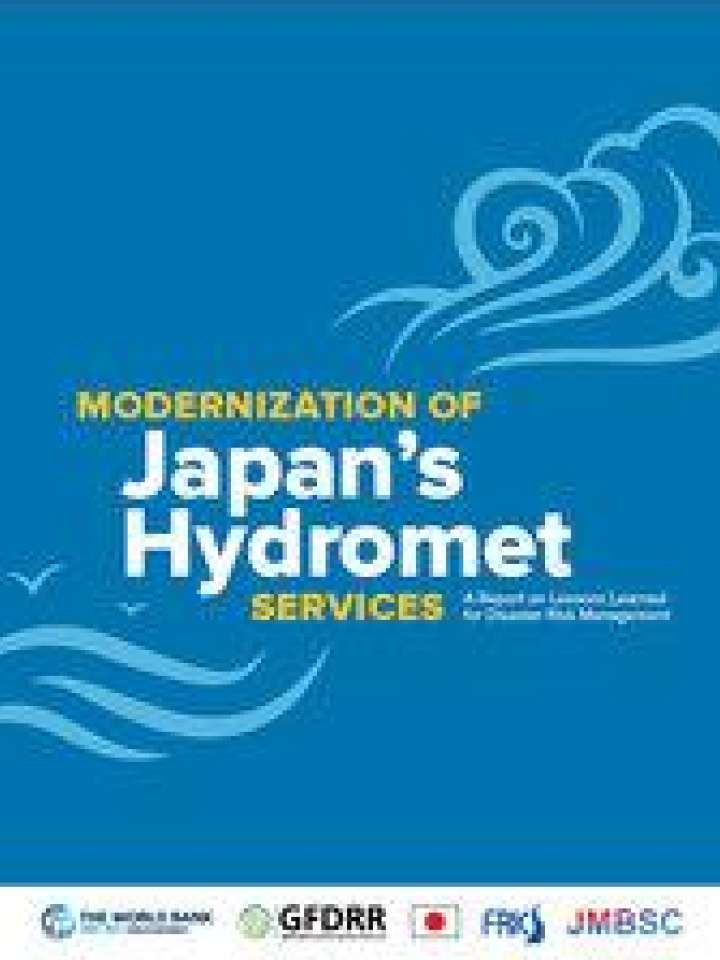Modernization of Japan's hydromet services: A report on lessons learned for disaster risk management
This summary report aims to provide a knowledge base for policy and decision makers that will allow governments and sponsor organisations to understand the fundamental operations of weather, climate, and hydrological services (together constituting “hydromet” services) and consequently target effective funding, in particular to developing countries.
The lessons learned provided in this report are the following (p. 20-21):
- Modernization of meteorological and hydrological services requires long-term step-by-step efforts, which should be anchored to well-defined medium- and long-term strategies.
- Legal and regulatory frameworks should clearly define the roles and responsibilities of the National Meteorological and Hydrological Agency (NMHS), as well as those of the public and private sector stakeholders who provide meteorological, hydrological, and early warning services.
- Design and development of hydrological regulatory frameworks in developing countries should be fully aligned with and where possible, fully included within, Integrated Water Resources Management (IWRM).
- Sound meteorological, seismic, and hydrological observation and data management systems are a prerequisite for any associated services. An open data policy supports broader use and higher value of the data for the community.
- A “hot” backup of a hydrology and meteorology systems-and-services hub is essential for business continuity.
- User-oriented, risk-based, and seamless early warning services should be established and advanced in close cooperation with the relevant authorities and the public. Maintaining and testing institutional arrangements are key to an effective service.
- It is imperative to maintain strong collaboration with local emergency first responders, as well as with the
public. This “last mile” is critical to the success of early warning systems. - User needs should define the modernization of meteorological and hydrological services.
Explore further
